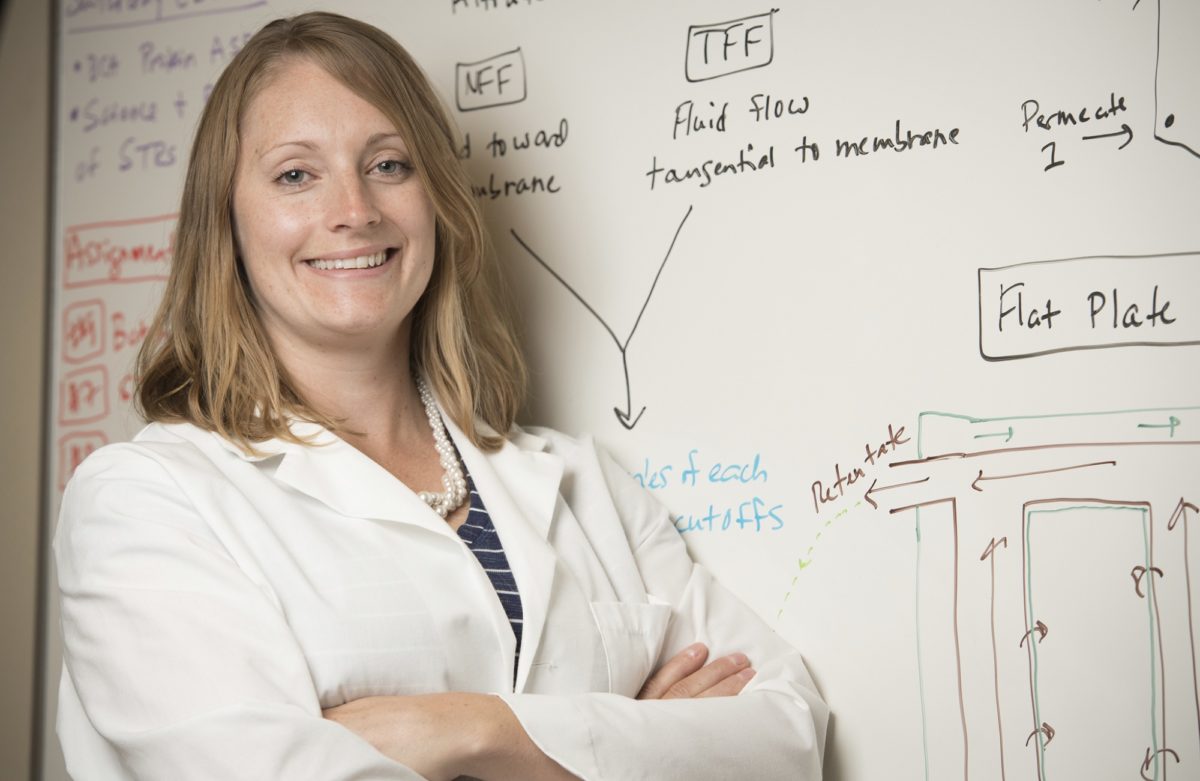
What happens when you combine an advanced degree in biotechnology with a background in teaching? A successful science writing career in the case of Darcia Schweitzer, a graduate of the University of Wisconsin–Madison’s Master of Science in Biotechnology Program.
Schweitzer had been teaching high school science for eight years when she decided to apply for the two-year program, which examines product development and technology-based entrepreneurship through the lenses of science, law, and business. She was confident that a master’s in biotechnology would benefit her teaching and make other careers a real possibility.
“I was a science teacher interested in a career change,” she explains, “and my high school teaching experience was a skill set I could leverage in a biotech career.”
Science knowledge, business strategies
Classes in project management, commercialization strategies, patents, and ethics helped Schweitzer become fluent in the business aspects of the biotechnology industry. She delved into the scientific side of the field by studying molecular technologies and the early phases of drug innovation.

Skills Schweitzer developed in her own classroom helped her manage complex projects, juggle multiple deadlines, and communicate about cutting-edge science in a clear and compelling way. Presentations and writing assignments then helped her showcase her new skill set to potential employers, while team-based projects provided opportunities to practice leadership techniques and cross-functional skills.
Schweitzer also appreciated the M.S. in Biotechnology Program’s schedule, which includes evening and weekend classes tailored to the needs of busy working professionals like herself. In addition to attracting teachers, the program draws practicing scientists, technical professionals, businesspeople, and attorneys.
“I had a family to help support and children to raise, so having flexibility in my schedule was important,” she explains.
Tools for career change
The M.S. in Biotechnology Program’s networking opportunities also helped Schweitzer launch her new career. The face-to-face classroom experience encouraged her to build deep relationships with other students as well as instructors, many of whom are UW–Madison faculty or biotechnology industry leaders from the Madison area. Contacts made in the program provided career advice and job references, and the university’s global alumni network introduced her to even more professionals who could help her enter the biotech industry.
Soon after graduating in 2016, Schweitzer began a new job as a science writer at the Promega Corporation, which manufactures enzymes and other products for the biotechnology and molecular biology industries. While she still maintains her teaching certification, she is pleased with the career shift, which puts her scientific knowledge, business acumen, and communication skills to good use.
Find out more about the Master of Science in Biotechnology Program. The program begins accepting applications for fall 2019 this October.